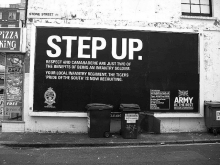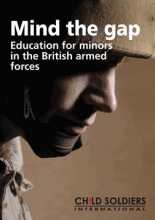The UK armed forces visit thousands of schools each year. They offer school presentation teams, ‘careers advisors’, lessons plans, away days and more. While they claim that this is not recruiting, the Ministry of Defence itself states that the...
Countering the Militarisation of Youth is a project of War Resisters' International | 2017 | All content of this site is licenced under a Creative Commons Attribution-NonCommercial-ShareAlike 2.0 UK: England & Wales License, unless otherwise stated.
Website development by Netuxo Ltd















